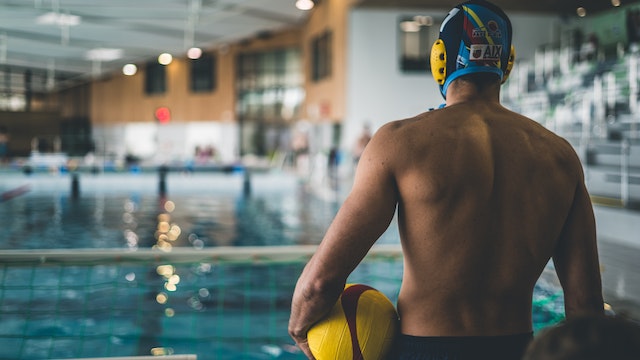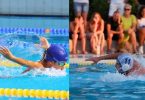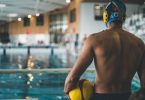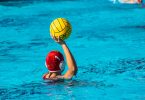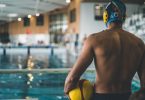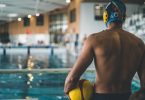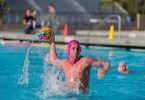Water polo is a physically demanding sport that requires a unique combination of swimming, ball-handling skills, and teamwork. For those who are new to the sport, one of the most common questions is how long it takes to learn water polo.
Unfortunately, there is no one-size-fits-all answer to this question, as the amount of time it takes to become proficient in water polo can vary depending on a number of factors.
Some of the factors that can influence how long it takes to learn water polo include a player’s prior experience with swimming and other sports, their natural athleticism, and their ability to pick up new skills quickly.
Additionally, the amount of time a player is able to dedicate to practicing and playing water polo can also play a role in how quickly they progress.
Despite these variables, there are some general guidelines that can give new players an idea of what to expect when it comes to learning water polo.
In this article, we’ll explore some of the key factors that can impact how long it takes to become proficient in water polo, as well as provide some tips for new players who are looking to improve their skills and become more competitive in the sport.
Factors Influencing the Learning Time
Age and Physical Fitness
The age and physical fitness of a person can affect how long it takes to learn water polo. Younger players may have an easier time learning the sport due to their flexibility and energy levels.
However, older players who are physically fit can also excel in the sport. In general, players who are in good physical condition can learn the sport faster than those who are not.
Swimming Skills
Swimming skills are essential for playing water polo. Players who have strong swimming skills can learn the sport faster than those who do not.
It is important to have a strong foundation in swimming before trying to learn water polo. This includes being able to swim long distances and being comfortable in the water.
Previous Experience in Team Sports
Previous experience in team sports can also affect how long it takes to learn water polo. Players who have experience playing other team sports, such as soccer or basketball, may have an easier time learning the sport due to their familiarity with team dynamics and strategy. However, players who have never played team sports before can still learn and excel in water polo with practice and dedication.
Commitment and Practice Schedule
Commitment and practice schedule are also important factors in learning water polo. Players who are committed to the sport and have a consistent practice schedule can learn the sport faster than those who do not.
Consistent practice allows players to develop their skills and become more comfortable in the water. It is important to have a dedicated practice schedule and to attend all practices in order to improve.
Training and Practice
Training and practice are essential for anyone who wants to learn water polo. It takes time and effort to develop the necessary skills and techniques to become a proficient player. Here are some important factors to consider when practicing water polo:
Frequency of Practice
Water polo players should practice regularly to improve their skills and techniques. The frequency of practice depends on the level of commitment and experience of the player.
Beginners may start with two to three practices per week, while more advanced players may practice up to six times per week. It is important to maintain a consistent practice schedule to see progress and improvement.
Duration of Practice
The duration of water polo practice can vary depending on the level of play, age, and skill level of the players. Generally, practices can range from one to two hours.
However, for younger players, practices may be shorter, while more experienced players may practice for longer periods. It is important to have a balance between practice time and rest to avoid injury and burnout.
Types of Drills
Water polo drills are designed to improve specific skills and techniques. Some common drills include passing, shooting, and swimming drills.
Passing drills focus on accuracy and speed, while shooting drills focus on power and accuracy. Swimming drills aim to improve endurance and speed in the water.
Coaches may also incorporate game-like situations to help players develop their tactical skills and decision-making abilities.
Basic Water Polo Skills and Techniques
Ball Handling and Passing
One of the most important skills in water polo is ball handling. Players must be able to control the ball with one hand while swimming and manoeuvring around defenders.
Passing the ball accurately and with precision is also crucial, as it allows for quick and efficient movement of the ball down the pool.
Some key techniques for ball handling and passing include:
- Using the fingertips to grip the ball
- Keeping the elbow high and close to the body
- Using a quick wrist flick to pass the ball
- Communicating with teammates to ensure proper ball movement
Shooting
Scoring goals is the ultimate objective in water polo, and shooting with power and accuracy is essential for success. Shooting techniques can vary depending on the player’s position and the situation, but some common techniques include:
- Using the legs to generate power
- Keeping the elbow high and close to the body
- Aiming for the corners of the goal
- Using a quick wrist flick to release the ball
Defensive Strategies
Water polo is a highly physical sport, and effective defense is critical for preventing the opposing team from scoring. Some key defensive strategies include:
- Pressing up on the opposing player to limit their movement
- Using the body to block shots and passes
- Communicating with teammates to ensure proper defensive coverage
- Anticipating the opposing team’s movements and adjusting accordingly
Goalkeeping
The goalkeeper is a critical position in water polo, responsible for blocking shots and preventing the opposing team from scoring. Some key techniques for goalkeeping include:
- Using quick reflexes to block shots
- Maintaining proper positioning in the goal
- Communicating with teammates to ensure proper defensive coverage
- Anticipating the opposing team’s movements and adjusting accordingly
Training Programs and Resources
Local Clubs and Classes
Joining a local water polo club or taking classes is a great way to learn the sport. Clubs and classes offer structured training programs that cater to different skill levels, from beginners to advanced players.
These programs typically include drills, scrimmages, and game simulations that help players develop their skills and improve their overall performance.
Some popular water polo clubs in the United States include the USA Water Polo Club, the New York Athletic Club, and the Los Angeles Water Polo Club. These clubs offer year-round training programs for both youth and adult players.
Online Resources
In addition to local clubs and classes, there are also numerous online resources available that can help players learn the sport of water polo.
Websites like SwimOutlet.com and WaterPoloPlanet.com offer instructional videos, training tips, and other resources that can help players improve their skills. There are also several online courses and certifications available for players who want to take their training to the next level.
The American Water Polo Coaches Association offers a variety of online courses for coaches and players, including courses on water polo fundamentals, game strategy, and coaching techniques.
Camps and Clinics
Attending a water polo camp or clinic is another great way to learn the sport. These programs offer intensive training sessions that focus on specific skills and techniques. They also provide a great opportunity for players to meet and learn from experienced coaches and players.
Some popular water polo camps and clinics include the USA Water Polo ODP Camp, the United States Naval Academy Water Polo Camp, and the Stanford Water Polo Camp. These programs offer a range of training options for players of all ages and skill levels.
In conclusion, there are many different training programs and resources available for players who want to learn the sport of water polo. Whether you choose to join a local club, take online classes, or attend a camp or clinic, consistent practice and dedication are key to improving your skills and becoming a successful water polo player.
Measuring Progress and Success
Personal Milestones
Measuring progress in water polo requires setting personal milestones to track individual improvement. These milestones can be based on specific skills, such as passing or shooting, or overall fitness goals, such as improving endurance or speed. Setting these goals and tracking progress towards them can help players stay motivated and focused on their development.
One way to track progress towards personal milestones is to keep a training diary. This can include notes on specific drills or exercises, as well as tracking improvements in performance over time.
For example, a player may note their time for swimming 100 meters at the beginning of the season, and then track improvements in their time as they continue to train.
Another way to measure progress is to work with a coach or mentor who can provide feedback and guidance on areas for improvement. Coaches can help players identify strengths and weaknesses, set realistic goals, and develop strategies for achieving those goals.
Competitive Play
Competitive play is another way to measure progress in water polo. Playing against other teams provides a benchmark for individual and team performance, and can help players identify areas for improvement.
One way to track progress in competitive play is to keep a record of wins and losses, as well as individual statistics such as goals scored or assists made. This can help players and coaches identify patterns and trends in performance, and develop strategies for improving in specific areas.
Another way to measure progress is to participate in tournaments or other competitive events. These events provide an opportunity to test skills and abilities against a variety of opponents, and can help players gain confidence and experience in high-pressure situations.
Ultimately, measuring progress and success in water polo requires a combination of personal milestones and competitive play. By setting goals, tracking progress, and seeking feedback from coaches and mentors, players can continue to improve their skills and achieve success on the field.

